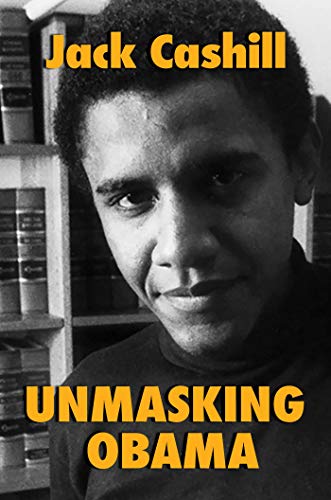In 1985, Michelle Obama presented her senior thesis in the sociology department of Princeton University. Although Michelle drew no such conclusion, the thesis is a stunning indictment of affirmative action. Those who benefited from it, Michelle most notably, may never recover from its sting.
Her thesis reads like a cry for help. “I have found that at Princeton no matter how matter how liberal and open-minded some of my white professors and classmates try to be toward me,” she writes, “I sometimes feel like a visitor on campus; as I really don’t belong.”
 Unmasking Obama: The F...
Buy New $27.11
(as of 04:59 UTC - Details)
She didn’t. Michelle should never have been admitted to Princeton. Thanks to the “numerous opportunities” presented by affirmative action, however, Princeton is where she found herself. “Told by counselors that her SAT scores and her grades weren’t good enough for an Ivy League school,” writes biographer Christopher Andersen, “Michelle applied to Princeton and Harvard anyway.” Sympathetic biographer Liza Mundy writes, “Michelle frequently deplores the modern reliance on test scores, describing herself as a person who did not test well.”
Unmasking Obama: The F...
Buy New $27.11
(as of 04:59 UTC - Details)
She didn’t. Michelle should never have been admitted to Princeton. Thanks to the “numerous opportunities” presented by affirmative action, however, Princeton is where she found herself. “Told by counselors that her SAT scores and her grades weren’t good enough for an Ivy League school,” writes biographer Christopher Andersen, “Michelle applied to Princeton and Harvard anyway.” Sympathetic biographer Liza Mundy writes, “Michelle frequently deplores the modern reliance on test scores, describing herself as a person who did not test well.”
She did not write well, either. She even typed badly. Mundy charitably describes the thesis as “dense and turgid.” The less charitable Christopher Hitchens observed, “To describe [the thesis] as hard to read would be a mistake; the thesis cannot be ‘read’ at all, in the strict sense of the verb. This is because it wasn’t written in any known language.”
Hitchens exaggerates only a little. The following summary statement by Michelle captures her unfamiliarity with many of the rules of grammar and most of logic:
The study inquires about the respondents’ motivations to benefit him/herself, and the following social groups: the family, the Black community, the White community, God and church, The U.S. society, the non-White races of the world, and the human species as a whole.
 Barry Soetoro (a.k.a. ...
Best Price: $18.36
Buy New $12.95
(as of 04:43 UTC - Details)
The design of the thesis is a disaster, but the idea behind it is not a bad one. Michelle wanted to gauge the attitudes of black Princeton alumni on a range of variables. She sent her survey to 400 alumni; 89 responded, 60 percent of whom were male, 80 percent of whom were between the ages of 25 and 34.
Barry Soetoro (a.k.a. ...
Best Price: $18.36
Buy New $12.95
(as of 04:43 UTC - Details)
The design of the thesis is a disaster, but the idea behind it is not a bad one. Michelle wanted to gauge the attitudes of black Princeton alumni on a range of variables. She sent her survey to 400 alumni; 89 responded, 60 percent of whom were male, 80 percent of whom were between the ages of 25 and 34.
The survey is a stark exercise in black and white. Michelle never uses the phrase “African-American.” It had apparently not yet entered the lexicon. Nor does she retreat to phrases like “people of color” or “minority groups.” In her world, there are only black people and white people.
White people intimidate her, as they appear to do to many of the alumni. Although most of the survey results are either impossible to decipher or irrelevant, one set of data is worth attention. The alumni were asked whether they felt comfortable around whites.




